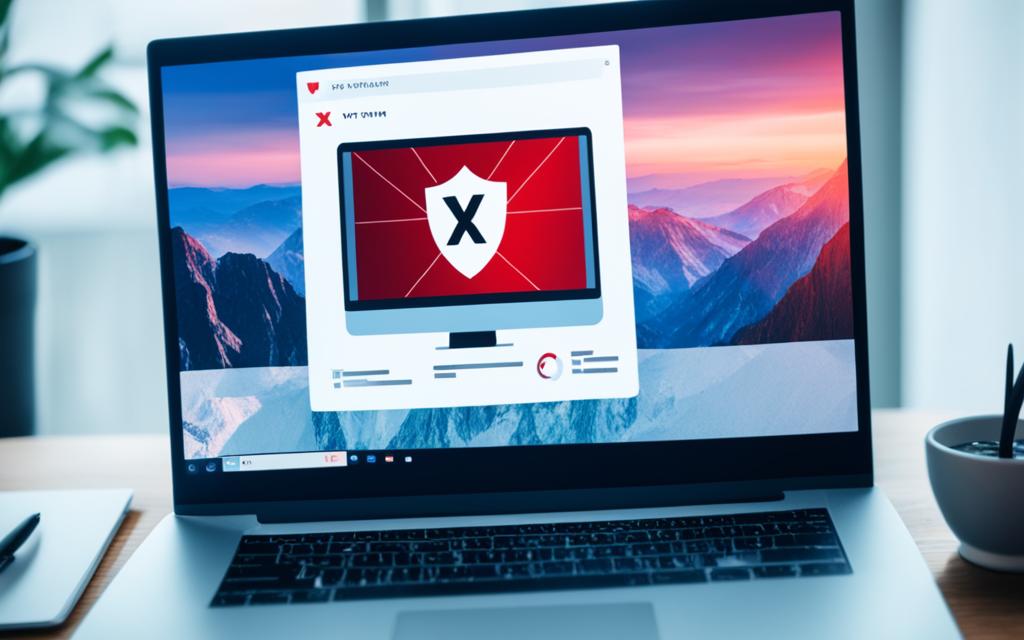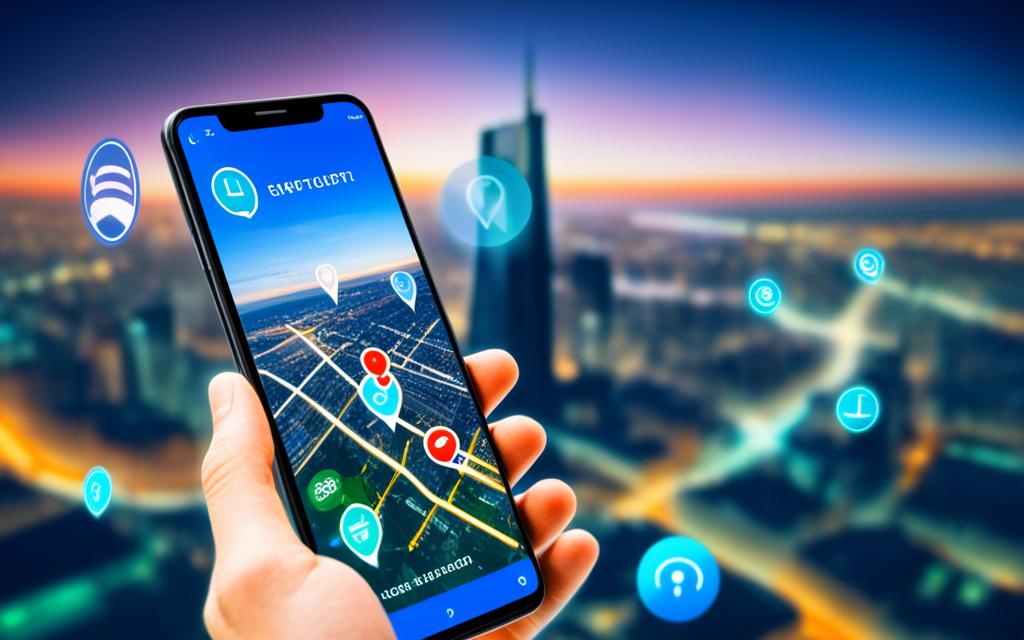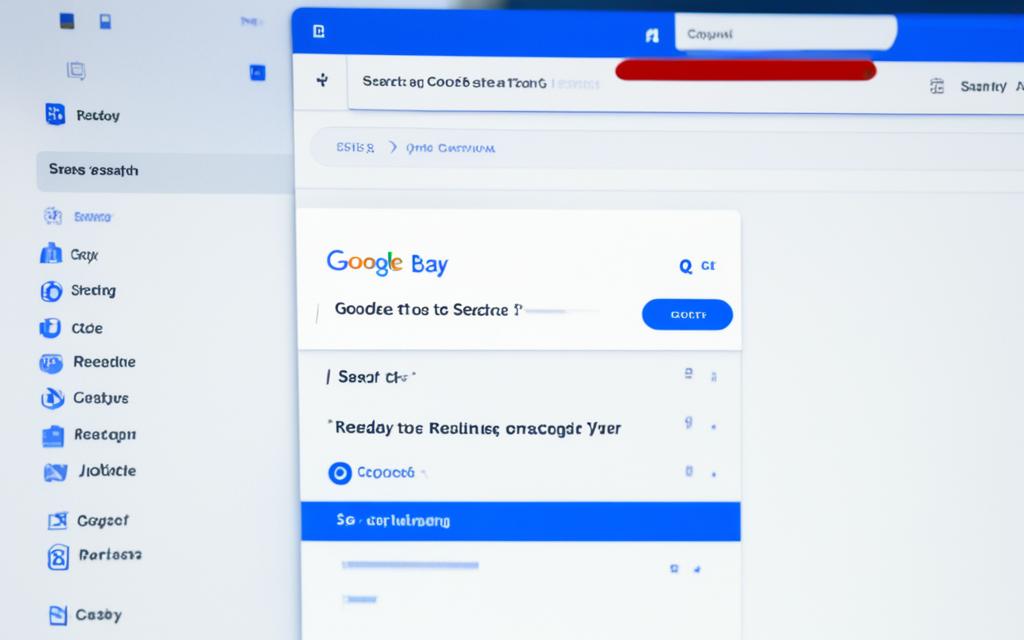How to Use VPN on Android: Complete Tutorial
In today’s world, keeping my online life private is key. That’s why a virtual private network (VPN) is so important. This guide will show me how to use a VPN on my Android device.
Cybercrime is on the rise, especially in 2024, making secure connections vital1. A VPN helps me stay safe and private online. It also lets me access content blocked in my area. Did you know Android supports VPN protocols like PPTP, L2TP, and IPsec2? With this, I can safely use public Wi-Fi, which is often risky1.
This guide covers VPN basics and how to set it up on my Android. I’ll learn to install, configure, and use my VPN for work and more. It’s important to pick a VPN wisely since many apps track user data2. Let’s start setting up my VPN on Android!
Introduction to VPN on Android
Using my Android device, I see how crucial a VPN is. Most mobile users use their phones for social media, shopping, and banking. This means there’s a big risk of data being exposed3. A VPN boosts Android security and gives benefits that users should not ignore.
A VPN encrypts my data and hides my IP address. This is key when I use public Wi-Fi, which is often not safe. With a VPN for Android, I don’t worry about hackers getting my info. Many VPNs, like NordVPN with over 5,000 servers, add extra security4.
People are getting more worried about ISPs tracking and exposing their data. That’s why VPN use has gone up by 25% when people travel. It lets me access my favorite sites without worrying about location blocks3. There are many options, from PrivadoVPN’s free plan to CyberGhost’s 7,000 servers, for every need4.
Looking into VPNs more, I see they’re key for keeping my online life private. The variety of VPN protocols, like WireGuard and OpenVPN, adds more security. This lets me make smart choices online4.
Understanding What a VPN Does
Using a Virtual Private Network (VPN) is key for those worried about online safety and privacy. It encrypts data and helps get past location blocks. For Android users, knowing how a VPN works is crucial for the best security and ease of use.
Enhancing Security and Privacy
VPNs keep my online actions private and safe. They encrypt my internet use, keeping it away from hackers and government eyes. This is key in a world where data theft is common. Android devices support different VPN features, letting users like me customize our security based on our device’s setup5.
Bypassing Geographical Restrictions
VPNs are great at getting past location blocks. By connecting to a server in another country, I can see content blocked in my area. This is super useful for streaming services that block certain areas. The tech behind this is standard across many VPNs, with OpenVPN and Wireguard being top choices for their strong security and speed6.
Using VPNs on Public Wi-Fi Networks
Public Wi-Fi at places like cafés or airports can be risky. A VPN keeps my connection safe, keeping my info from prying eyes. The encryption a VPN offers is a must for anyone using public Wi-Fi often, as it shields against data theft5.
Why You Need a VPN on Android
In today’s world, having a VPN on my Android device is a must. It lets me access work resources from anywhere, stream content from all over the world, and keep my online privacy safe.
Accessing Work Resources Remotely
Working from anywhere means I need secure access to my work files. A VPN for work encrypts my connection, keeping my data safe from prying eyes. This means my emails, bank info, and other sensitive details are protected7. Many companies now ask for a VPN to access their networks, making remote work safer and more secure8.
Streaming Region-Locked Content
Streaming shows is a favorite pastime, but sometimes shows are only available in certain areas. VPNs let me get past these location blocks, so I can watch shows from Netflix and Hulu9. A VPN means I can enjoy new series and movies, no matter where I am.
Staying Anonymous Online
Privacy is a big concern in our digital lives. A VPN hides my IP address, letting me surf the web without anyone tracking me8. This is crucial, especially since Google knows a lot about my Android use. A VPN keeps my online activities private, keeping my personal info safe9.
How to Use VPN on Android
Starting with VPN on Android is easy, thanks to dedicated apps. First, download a trusted VPN app from the Google Play Store. NordVPN is a great choice, with over 6400 servers worldwide and top-notch security10.
Installing a VPN App
To get VPN apps, go to the Google Play Store on your device. Look for a VPN that meets your needs, install it, and then set up your VPN connection. Make sure your Android version is 9.0 or higher for full features11.
Connecting to the VPN
After installing the app, log in with your details to connect to VPN on Android. This secures my data and hides my IP address. Then, pick a server from the list to start a secure connection12.
Changing VPN Settings
For the best performance, I tweak my VPN settings. I change connection options and turn on Always-on VPN for constant protection. Disabling IPv6 also boosts security and speed, making my experience better12.
Setting Up Android’s Built-in VPN
Setting up the built-in VPN on Android is easy. I quickly find the settings and connect without needing extra apps.
Accessing Network Settings
To start, I head to my Android’s network settings. In the ‘Network & internet’ section, I find the VPN options. Here, I can add a new VPN connection easily.
Entering VPN Information
After getting to the right settings, I enter my VPN details. It’s key to use the correct info from my VPN service or IT team. I fill in all the needed info carefully to ensure a secure connection. Many users skip this step, which can cause problems later.
There are many VPN apps for Android, but not all users need them. A lot of people don’t use VPN services at all13. Once I’ve filled in the details, I can see if my VPN is working by checking the status bar icon on my device13.
Installing a Third-Party VPN App
Installing a third-party VPN app can boost your online security and let you access more content. When picking a VPN, I look at encryption, server options, ease of use, and price. This helps me find the best VPN for my needs, like streaming and browsing speed.
Choosing the Right VPN Service
I highly recommend checking out ExpressVPN and NordVPN for Android users. ExpressVPN has a great app and offers a 30-day money-back guarantee14. NordVPN also has deals, like a 72% discount on subscriptions15. This way, I can pick a VPN that balances security with performance well.
Step-by-Step Installation Guide
Here’s how I install a VPN app:
- Go to the Google Play Store or the VPN’s website to download the app.
- Start the installation and allow any needed permissions.
- Open the VPN app and set it up as prompted.
- If needed, use protocols like OpenVPN for better security, or follow the easy setup16.
Once installed, I can keep my online activities safe, even on public Wi-Fi. Choosing trusted providers means my data stays encrypted and I can enjoy the internet safely.

Connecting and Disconnecting from your VPN
Knowing how to connect and disconnect from a VPN is key for online security. Whether I use an app or Android’s settings, the VPN connection process is easier with knowledge. Let’s explore the ways to connect to and disconnect from my VPN.
Connecting to the VPN via Settings
To connect my VPN through settings, here’s what I do:
- Go to the device’s main settings menu.
- Navigate to “Network & Internet” and then select “VPN.”
- Select the VPN I wish to connect to.
- Enter any necessary credentials specified by my VPN provider.
- Click on “Connect” to start the connection.
Incorrect VPN settings can cause connection drops. To prevent this, I pick a server that’s geographically close for better stability and speed17.
Disconnecting the VPN
Disconnecting is easy too:
- Access the same VPN menu in the settings.
- Select the VPN I am currently connected to.
- Click “Disconnect” to stop the VPN connection.
Power-saving features on my device can sometimes cut off the VPN. To avoid this, turning off that feature ensures a smooth experience18.
Understanding how to connect and disconnect from my VPN keeps me secure and connected when needed. It also lets me easily switch back to my standard network without trouble17.
Editing VPN Settings on Android
Editing your VPN settings on Android lets you customize your connection for your needs. I often adjust these settings, like picking different protocols or server locations for better performance.
Changing Connection Preferences
To edit VPN settings, I go to the Settings app under Network & internet, then VPN. Here, I find options like Check Point Capsule VPN, Cisco AnyConnect, and F5 Access19. It’s important to check if my Android version supports the editing options, as some are only for Android 9.0 and newer11. I just pick the VPN I want to change, enter my login details, and I’m set.
Using Always-on VPN Features
The Always-on VPN feature keeps me protected while I browse. It keeps my VPN on by default, which is great for secure tasks. To turn it on, I go to the VPN settings and adjust my preferences11. If I don’t need constant VPN alerts, I can turn it off to manage notifications better.
There are resources available to help with adding or removing certificates or setting up work profiles if I run into problems with VPN settings on my Android11.
Advanced VPN Features
Using a VPN can make my online activities safer and better. Features like split tunneling and VPN kill switch are key. They help me stay secure and keep my data safe.
Using Split Tunneling
Split tunneling lets me pick which apps or websites use the VPN and which don’t. This way, I can use the VPN for important tasks and the regular internet for others. It’s great for keeping some apps fast without slowing down the VPN.
This feature is becoming more popular because it gives users like me more control and speed. It’s a big plus for those who need flexibility and efficiency online20.
Enabling a VPN Kill Switch
The VPN kill switch is a key security tool. It stops my internet from being exposed if the VPN drops out. This keeps all my data safe until the VPN is back up, preventing leaks20.
Top VPNs like Surfshark and IPVanish offer this feature. It helps keep my sensitive info safe from being shared by mistake2122.
| Feature | Description | Benefit |
|---|---|---|
| Split Tunneling | Allows selective app or website routing | Optimizes speed and performance while using the VPN |
| VPN Kill Switch | Disconnects internet if the VPN drops | Prevent data leaks and maintain security at all times |
Common Issues with VPNs on Android
Using a VPN on Android can sometimes lead to frustrating connection problems. It’s important to know how to fix these issues to improve your experience. Here are some common problems and tips to solve them.
Troubleshooting Connection Problems
Fixing VPN connection issues is key to a smooth experience. Here are some common problems:
- VPN server downtime or technical issues often cause connection problems23.
- Not granting necessary app access can hinder VPN functionality on mobile devices23.
- Switching between mobile data and Wi-Fi may result in VPN connection breakdowns23.
- Some countries restrict or ban VPN use, complicating connections23.
- Problems streaming services like Netflix can arise due to banned IP addresses from VPN servers23.
Resolving Performance Issues
Fixing VPN performance issues is crucial, especially when speed matters. Here are ways to boost VPN performance and speed:
- Choosing quality VPN services, such as NordVPN or Surfshark, ensures robust performance and speed24.
- Regularly testing my internet connection and ensuring I have correct VPN credentials are basic but effective troubleshooting steps23.
- Overloaded or slow VPN servers can drastically affect speed; switching servers can often help25.
- Updating my VPN client can prevent compatibility issues and software malfunctions25.
- Exchanging VPN protocols can lead to quick fixes for connectivity and speed challenges2325.
How to Choose the Best VPN for Your Needs
Finding the right VPN is key for security and good performance. I look at pricing and features when comparing VPNs. It’s important to check these out to find one that fits my needs.
Evaluating Pricing and Features
I check my budget and important features when looking at VPNs. For example, Proton VPN has a deal for $2.99 a month, which is 70% off the 2-year plan26. Surfshark VPN is even cheaper at $2.19 a month and includes 3 months free, saving 86% on its 2-year deal26. NordVPN’s price is $3.39 a month, with 1GB daily eSIM data and up to 72% off its 2-year plan26.
It’s also key to look at how well VPNs perform. NordVPN showed an average internet speed loss of just 11% in tests, making it a top choice27. I also consider how many devices can connect at once. For example, ExpressVPN lets me connect 8 devices, while Surfshark allows unlimited connections27.
Looking for Strong Encryption and No-Logs Policies
Strong encryption is crucial for me. I want my VPN to use AES-256 bit encryption for top security and have a strict no-logs policy. This keeps my online identity private. Providers like ProtonVPN and NordVPN are great in this area, making them more appealing26
Conclusion
Using a VPN on Android devices brings many benefits for security and online activities. It keeps my data safe by encrypting it, stopping others from seeing my information. This means I can enjoy streaming without limits and get faster speeds by using servers in better locations2829.
This guide showed why picking the right VPN is key. Whether I want a free or paid service, it must fit my needs. Free VPNs can be risky, as they might sell my data or have security issues2930.
With the tips shared, I can surf the web safely and privately. VPNs do more than hide my identity; they make my online life better. They help me access more content, making my internet experience richer28.
FAQ
What is a VPN and how does it work on Android?
Why do I need a VPN on my Android device?
Can I use a VPN to access region-restricted streaming services?
How can I install a VPN app on my Android?
What should I look for when choosing a VPN service?
Is it safe to use a VPN on public Wi-Fi?
What is split tunneling in a VPN?
Can I set up a VPN directly through my Android settings?
How do I disconnect my VPN from my Android device?
What is a VPN kill switch, and why is it important?
How can I troubleshoot slow speeds while using a VPN?
What are the benefits of using a VPN for online anonymity?
Source Links
- https://www.mcafee.com/learn/how-to-set-up-a-vpn-on-an-android/
- https://www.security.org/vpn/android/
- https://www.cyberghostvpn.com/privacyhub/set-up-vpn-android/
- https://allaboutcookies.org/how-to-set-up-vpn-android
- https://support.google.com/work/android/answer/9213914?hl=en
- https://www.androidpolice.com/phone-vpn-explainer-how-to-use/
- https://www.kaspersky.com/resource-center/threats/why-use-vpn-on-smartphone
- https://www.techradar.com/vpn/do-i-need-to-download-a-vpn-for-my-android-phone
- https://protonvpn.com/blog/do-you-need-vpn-android
- https://nordvpn.com/blog/vpn-for-android/
- https://support.google.com/android/answer/9089766?hl=en
- https://www.techrepublic.com/article/how-to-use-vpn-android/
- https://www.howtogeek.com/135036/how-to-connect-to-a-vpn-on-android/
- https://www.vpnmentor.com/blog/connect-vpn-android-protect-privacy/
- https://restoreprivacy.com/vpn/best/android/how-to-use-vpn-on-android/
- https://blog.avast.com/using-mobile-vpn-on-iphone-or-android
- https://www.vpnmentor.com/blog/how-to-keep-your-vpn-from-disconnecting/
- https://www.01net.com/en/vpn/vpn-keeps-disconnecting/
- https://learn.microsoft.com/en-us/mem/intune/configuration/vpn-settings-android
- https://www.security.org/vpn/app/
- https://surfshark.com/blog/how-to-use-a-vpn
- https://www.ipvanish.com/vpn-features/
- https://www.kaspersky.com/resource-center/preemptive-safety/common-vpn-problems
- https://tech.co/vpn/vpn-troubleshooting-fix-vpn-problems
- https://www.security.org/vpn/fix-common-issues/
- https://www.pcmag.com/picks/the-best-android-vpns
- https://www.cnet.com/tech/services-and-software/best-vpn/
- https://medium.com/@leomoore7c2j/how-to-use-vpn-on-android-for-free-internet-06674f3d341d
- https://www.airtel.in/blog/postpaid/how-to-use-vpn-on-cell-phone/
- https://www.geeksforgeeks.org/how-to-use-a-vpn/




